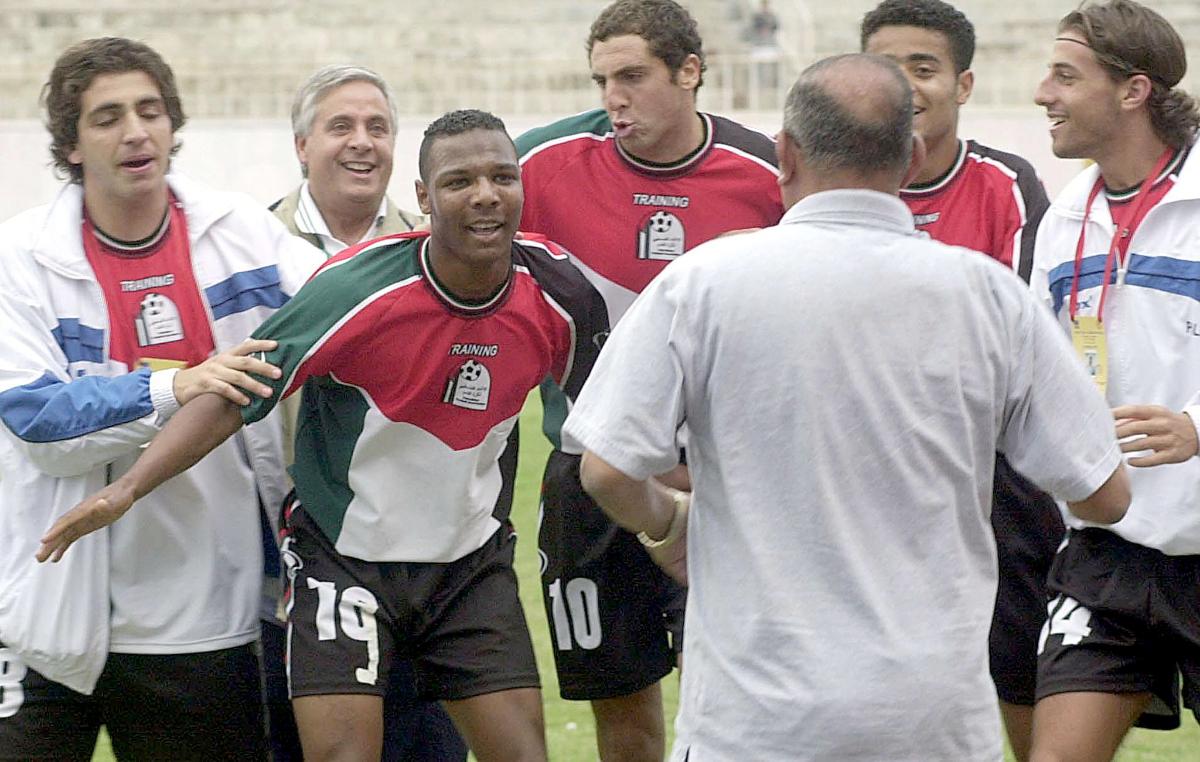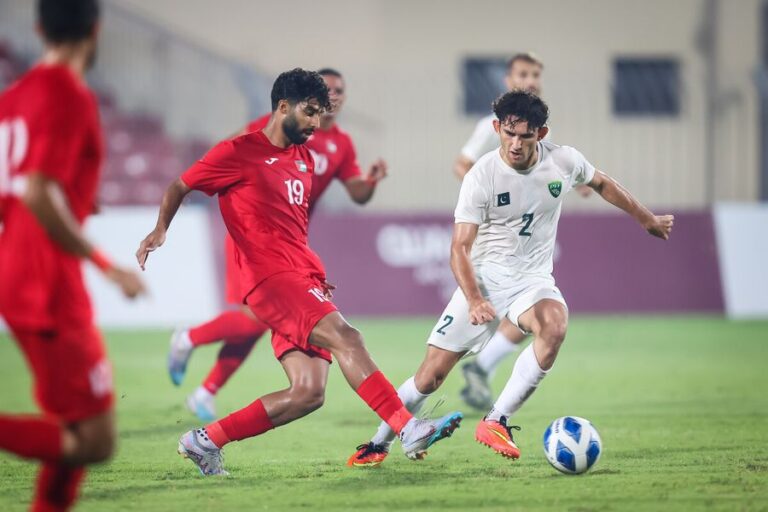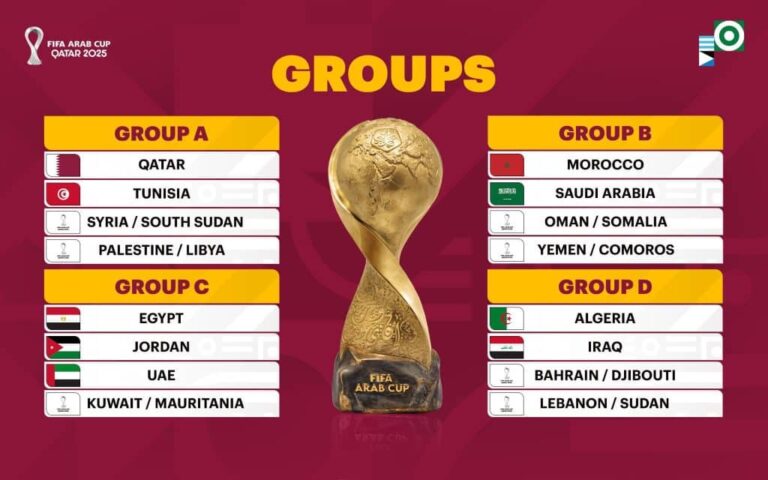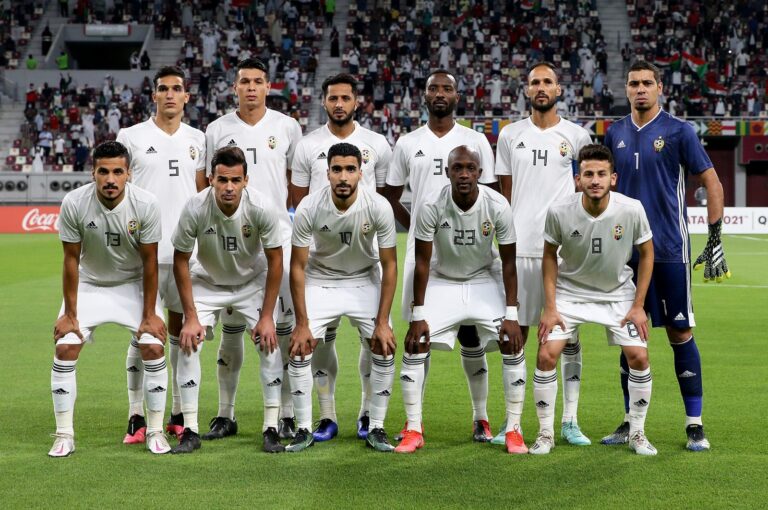Quotes and background taken from the original Spanish language article by Gonzalo Flores Domarchi
Watch enough Palestine national team games and you will come across some names that do not quite belong. Since joining FIFA in 1998, 235 players have earned an official cap with the Palestine national football team- 7% of those players (16 players in total) were born in Chile- home of the largest Palestinian diaspora outside of the Arab World.
The trend to scout in South America started over twenty years ago. In 2002, Nicola Hadwa was a commercial engineer coaching Deportes La Serena in Chile’s second tier in spite of his success with the club he was summarily fired for speaking out against Israel policies during the Second Intifada.
“In that season at Deportes La Serena, where I was training, the club had been bought by a company that owned half of the institution, called International Player, from Argentina, where most of them were Zionists of Jewish religion.”
“I was unjustly disassociated by statements I made in favour of the Palestinian people as a result of one of the usual massacres of the Israeli criminal state against the Palestinian people.”
Hadwa’s dismissal from Deportes La Serena did open a door. As the country of his birth approached him with the idea of putting together a team to contest 2004 Olympic qualification, the 2002 Arab Cup, and 2004 Asian Cup qualification.
With all football activity suspended in Palestine due to the Second Intifada; a bold plan was hatched by the Palestine Football Association. Hadwa would be given the remit to build a Palestinian team that would be entered in Chile’s old Tercera División- its former third tier and the top level of amateur football in the country.
Hadwa who had to attend to his duties as national team coach appointed Leonardo Vinés Carvajal to oversee the team. A 29 player roster was cobbled together from an initial training session of 200- all of Palestinian heritage- mostly students with very little experience in the professional world of football.
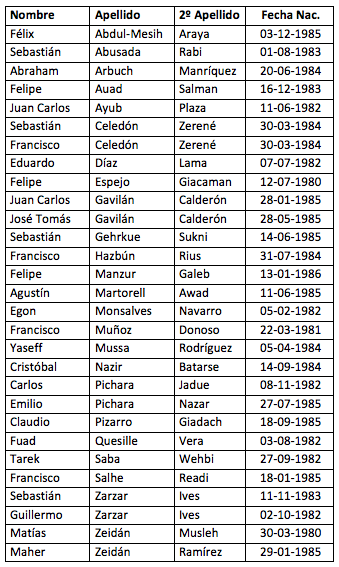
To prepare Palestine snagged an invitation to the South American Championship of Confraternity which the U20 teams of the region were using the championship to prepare for the Copa Ámerica. The team was soundly beaten 5-0 by Uruguay but acquitted themselves well in a 3-1 loss to Paraguay weeks before their inaugural season.
Administrative issues meant the team did not contest all the matches in their only season in the division- contesting only eight out of 19 in the first half of the season. The scrappy bunch did put together a couple of wins- below is a summary of their matches:
APERTURA:
Palestine 1-2 Lautaro de Buin
San Antonio Unido 3-0 Palestine
Universidad Católica B 12-0 Palestine
Palestine 0-2 Hossana
Lautaro de Buin 4-0 Palestine
Palestine 0-8 San Antonio Unido
Palestine 0-3 Universidad Católica B
Hossana 5-2 Palestine
CLAUSURA:
Universidad Católica B 3-0 Palestine
Palestine 0-3 UNIACC
San Antonio Unido 6-0 Palestine
Palestine 2-3 Cristo Salva
Trasandino 0-0 Palestine
Palestine 1-4 Deportes Quilicura
San Luis 7-0 Palestine
Palestine 1-1 Lautaro de Buin
Municipal Nogales Melón 0-2 Palestine
Palestine 1-4 Universidad Católica B
UNIACC 4-1 Palestine
Palestine 1-4 San Antonio Unido
Cristo Salva 1-2 Palestine
Palestine 0-1 Trasandino
TOTAL 19 GP: 3W-3D-13L 15 GD, 55 GA, -40 GD
The team’s head coach recounted that tumultuous first season: “What we did was put together a selection of all those guys who came to the call. We tried players from different positions and there we were putting together the team. The truth is that a good group was put together, the people who were there cooperated quite a lot at the beginning.
The project needed a lot of support, but little by little it was lost…. Mostly because the young people were starting their processes as football players and it cost a lot. There were about three or four players in this squad who could be considered for the pre-Olympic team. With Nicola (Hadwa) we tried to do things the best way, we played in The Cisterna and little by little that desire to want to continue, even though we were doing it quite well, but it could not continue.”
Even though the venture only lasted a single season it could be defined as a success. Palestine needed players to compete in Olympic qualification and to complement the players based in Palestine. Six players from the amateur side made the Olympic Team- Eduardo Díaz, Abraham Arbuch, Tarek Saba, Cristobal Nazir, Guillermo Zarzar and Fuad Quesille. The latter would go on to represent the senior team on two occasions. Those seven players would link up with Fabian and Roberto Bishara, Roberto Kettlun, and Jorge Lema.
That team beat Nepal in two games in Kathmandu, a 1-1 draw, was followed up with a 2-1 win to set up a date with Kuwait who had qualified for the last Olympics.
Palestine earned a 1-1 draw and a temperamental match in the second leg (also hosted in Kuwait City) saw the hosts eke out a 2-1 win.
Palestine’s Olympic dreams were over and Kuwait nearly qualified for Athens only for results on the final match day in a group featuring Iraq, Saudi Arabia, and Oman to deny them.
The legacy of that team is not so much the results achieved on the pitch but the trend it started. Palestine became pioneers in mining the diaspora for talent. Fuad Quesille, Roberto Bishara, and Roberto Kettlun all went on to play for the senior national team. The latter two earned more than twenty official caps each.
Nicola Hadwa’s tenure with the senior team might have generated zero wins (five draws in ten official matches) but he did create a team that could attack and score goals. The team earned scoring draws against Jordan, Sudan and Kuwait at the Arab Cup. In Asian Cup qualification they earned a 1-1 draw against Qatar.
Fast forward two decades and Palestinian-Chileans are part of every national team helping Al-Fida’i reach new heights with each passing year.

